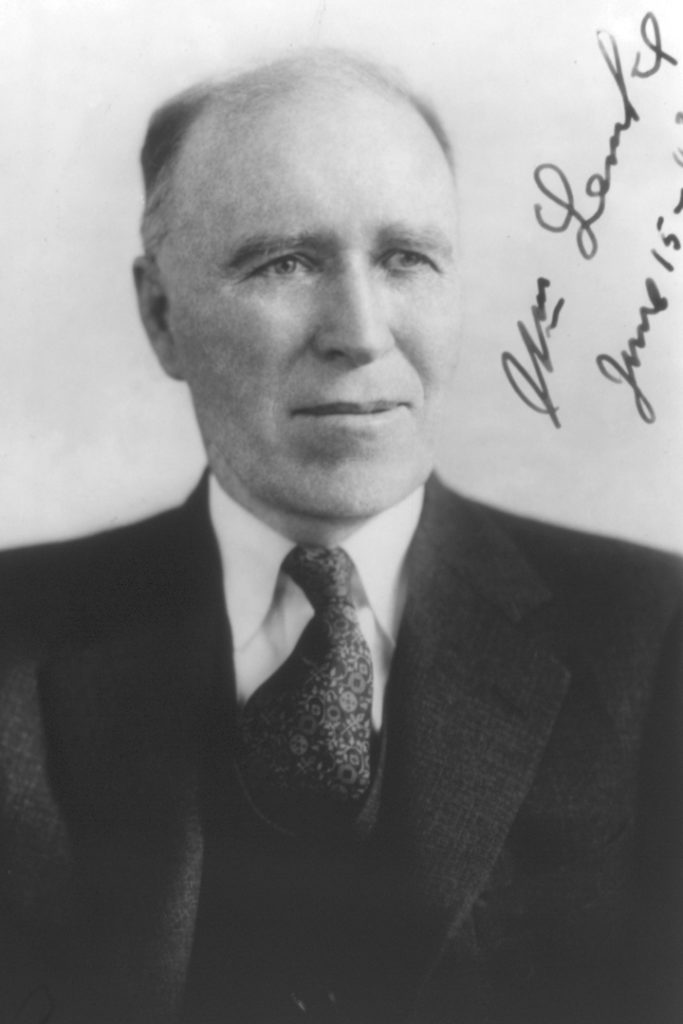
William F. Lemke (1878-1950) was considered by many to be the brains of the Nonpartisan League. He was called “the political bishop” by some. He had known Bill Langer before the League was founded. He was practicing law in Fargo when he was recruited for leadership in the NPL in the summer of 1915. League leaders Townley, Fred Wood, and others visited Lemke in Fargo, where he was recovering from typhus, to hire him full time for the League. Lemke is credited with helping to identify Lynn Frazier as a worthy candidate for North Dakota governor.
Lemke was a tireless worker. He frequently put in 18-hour days, particularly during the earliest years of the League’s insurgency. The historian Edward Blackorby has written, “Lemke’s willingness to work, his dynamic energy, his fiery caucus presentations, and his central position in the League headquarters made him a dominating figure.”
Lemke had a fiery temperament. He did not accept criticism or opposition without expressing his views in a sometimes-violent manner. His outspokenness and instinct for the political ruthlessness opened him to the charge that he was a rural demagogue.
Lemke made two serious mistakes that damaged his reputation and called into question the principles of the Nonpartisan League. Using money from the League’s Home Builders Association, Lemke built a house for himself and his family in Fargo that exceeded the HBA’s cap on public loans for private dwellings in North Dakota. That blunder became a symbol of League corruption and ineptitude.
He also let himself be elected chairman of the Republican Party in North Dakota in 1916, and Attorney General, a member of the critically-important Industrial Commission, in 1920. This violated Townley’s rule that League leaders would not stand for public office, to assure the farmer-citizens of North Dakota that their purposes were altruistic, not personal aggrandizement. In October 1921, together with the Governor Lynn J. Frazier and Commission of Agriculture John Hagan, Attorney General Lemke was recalled by the voters of North Dakota.

